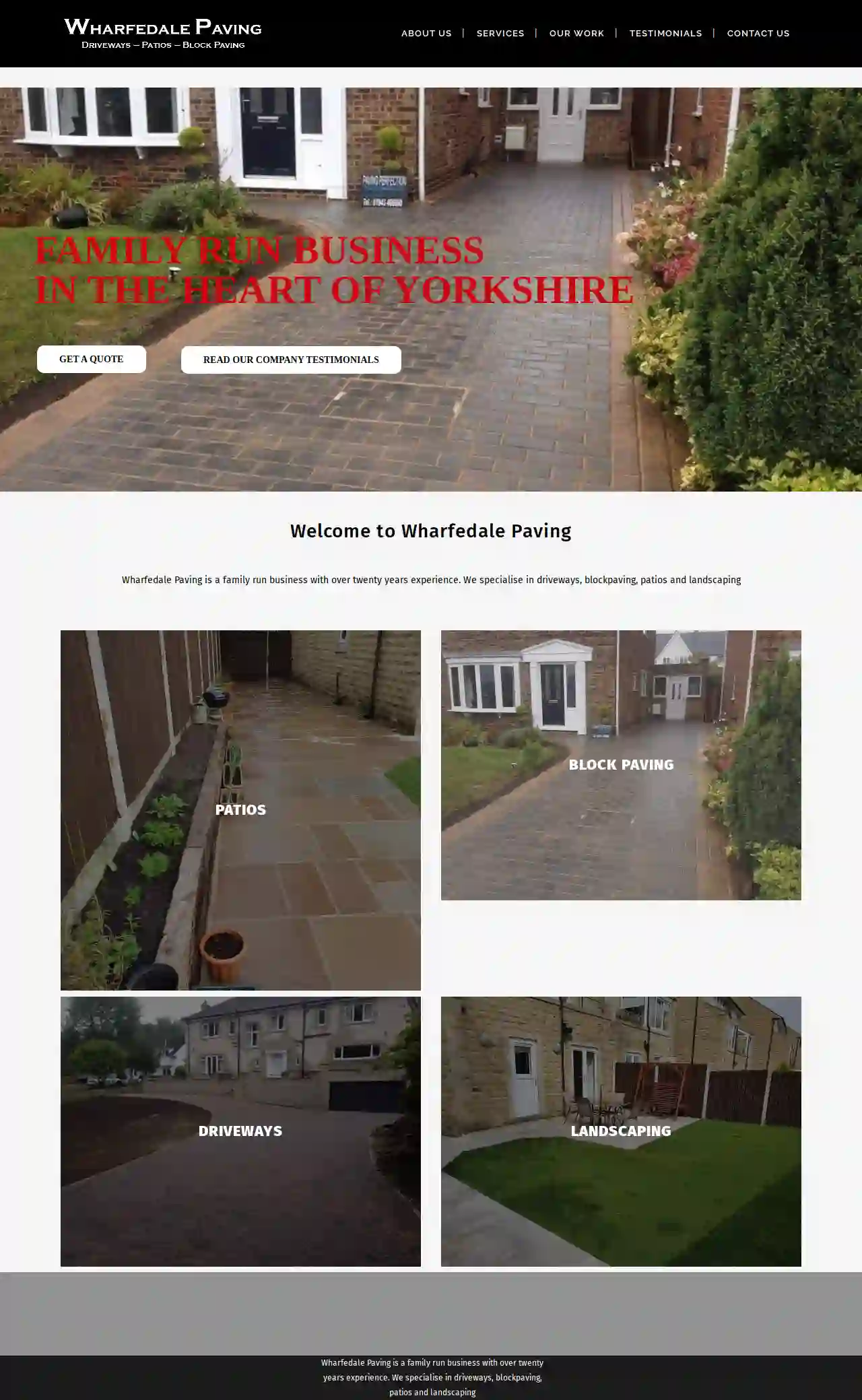Demolition Contractors Harrogate
Best Demo Contractors in Harrogate
Receive up to 3 Demolition Contractors quotes for your project today! Compare profiles, reviews, accreditations, portfolio, etc... and choose the best offer.

Hullah Contractors Ltd
52 reviewsDaleside, Crag Lane, Harrogate, North Yorkshire, HG3 2JY, GBQuality Drainage Contractors Hullah Contractors Ltd was formed in 1999 after the family business involved in Farming, Land Drainage and Plant Hire from 1960, was dissolved. Managing director Keith Hullah provides a hands-on personal service, with experienced staff in all aspects of drainage & construction work. We cover a wide area from our base in North Yorkshire. All our operators hold CCPS certificates. The company predominately dealt with agricultural Land Drainage to start with, projects now under-taken by us include Land Drainage, Ditching, Sports field Construction & Drainage, Pipeline Drainage, Cable Installation, Pond and Lagoon Excavation Water Pipe Installation, Golf Course Construction, Sewer & Dirty Water Systems, Concreting, All weather Arenas, Race Horse Gallops and Plant Hire.
- Services
- Why Us?
- Gallery
Get Quote
SRM Joinery Ripon Harrogate
1Unit 2, Barugh Avenue, Barker Business Park, Melmerby, Ripon, North Yorkshire, HG4 5NB, GBWelcome To SRM Joinery & Construction SRM Joinery & Construction was formed with the simple belief that quality should never be compromised which continues to be the fundamental drive behind all of our work. Based in North Yorkshire, SRM offer high quality architectural joinery to clients throughout the UK; providing a diverse portfolio of traditional homes and contemporary new builds.
- Services
- Why Us?
- Testimonials
- Gallery
Get Quote- RH
RHS Garden Harlow Carr
4.76 reviewsHarrogate, GB- Services
- Why Us?
Get Quote - AT
ATM Ltd
4.610 reviewsHarrogate, GB- Services
- Why Us?
Get Quote - Du
Duffield A E & Sons Ltd
4.45 reviewsHarrogate, GB- Services
- Why Us?
Get Quote - JO
JOM Construction Ltd
52 reviewsHarrogate, GB- Services
- Why Us?
Get Quote 
Valley Gardens Harrogate
4.7Royal Pump Room Museum, Royal Parade, Harrogate, HG1 2SZ, GBHarrogate's Award Winning Park Valley Gardens is a 17-acre English Heritage Grade II listed park-land, themed gardens, floral displays and historic buildings. Located in the heart of Harrogate, it's a haven of beauty and tranquility, offering a variety of attractions for visitors of all ages. The gardens are continually being restored and regenerated with major works spearheaded by Friends of Valley Gardens, working with North Yorkshire Council who own and manage the gardens. At the heart of Valley Gardens is Bogs Field where it is believed that a greater number of different mineral water springs (now wells) come to the surface than any other place on earth. Thirty-six of Harrogate’s approximately one hundred mineral wells are found within the gardens, with no two being alike. The floral displays are spectacular and include magnificent seasonal dahlia and bedding flowers, that are re-planted throughout the year. The adjacent Pinewoods (http://www.pinewoodsconservationgroup.org.uk) is a further 96 acres of woodland with footpaths leading to RHS Garden Harlow Carr and Birk Crag an area of outstanding natural beauty. Valley Gardens was developed as an attractive walk for visitors to the Spa town of Harrogate, part of their health regime between taking the waters, and as a means of access to the mineral springs of Bogs Field. The waterside walk with flowers and trees became a place for promenading, socialising and taking exercise. Photographs of the gardens in the early 20th century testify to their enormous popularity with crowds around the tea room, boating lake and bandstand.
- Services
- Why Us?
- Gallery
Get Quote- Ol
Old Magnesia Well Pump Room
4.114 reviewsHarrogate, GB- Services
- Why Us?
Get Quote 
Wharfedale Paving
1Harrogate, GBWelcome to Wharfedale Paving Wharfedale Paving is a family run business with over twenty years experience. We specialise in driveways, blockpaving, patios and landscaping.
- Services
- Why Us?
- Gallery
Get Quote- Le
Les Helme Excavations Ltd
52 reviewsHarrogate, GB- Services
- Why Us?
Get Quote
Over 11,537+ Excavation Contractors in our network
Our excavation contractors operate in Harrogate and surrounding areas!
ExcavationHQ has curated and vetted Top Excavation Contractors arround Harrogate. Find the most reliable contractor today.
Frequently Asked Questions About Demolition Contractors
- Dust Suppression: Use water spraying, misting systems, or other dust suppression techniques to control airborne particles.
- Noise Barriers: Erect temporary noise barriers around the demolition site to reduce noise transmission to nearby properties.
- Work Schedule: Schedule noisy demolition activities during permitted hours to minimize disturbance to neighbors.
- Communication: Keep neighbors informed about the demolition schedule and any potential disruptions.
- Recycling: Concrete, brick, metal, and wood can be recycled and reused in other construction projects, reducing waste sent to landfills.
- Landfill Disposal: Non-recyclable materials are disposed of in designated landfills according to local regulations.
- Donation: Some materials, such as fixtures or appliances, may be suitable for donation to charitable organizations.
- Waste Generation: Demolition generates a large volume of debris, contributing to landfill space and potentially releasing harmful substances into the environment if not disposed of properly.
- Air Pollution: Dust and particulate matter released during demolition can impact air quality, affecting human health and the environment.
- Noise Pollution: Demolition activities can generate significant noise, disturbing nearby residents and wildlife.
- Resource Depletion: Demolition consumes resources that could be salvaged and reused, contributing to resource depletion and environmental degradation.
What is the difference between demolition and deconstruction?
Demolition: Typically involves bringing down a structure quickly and efficiently, often using heavy machinery and potentially explosives. The primary goal is to clear the site.
Deconstruction: Focuses on carefully dismantling a building piece by piece to salvage reusable materials. It prioritizes minimizing waste and environmental impact, often involving manual labor and specialized tools.
The choice between demolition and deconstruction depends on the project's objectives, budget, and environmental considerations.
How can I minimize the dust and noise from demolition?
What happens to the debris after demolition?
What are the environmental impacts of demolition?
What is the difference between demolition and deconstruction?
Demolition: Typically involves bringing down a structure quickly and efficiently, often using heavy machinery and potentially explosives. The primary goal is to clear the site.
Deconstruction: Focuses on carefully dismantling a building piece by piece to salvage reusable materials. It prioritizes minimizing waste and environmental impact, often involving manual labor and specialized tools.
The choice between demolition and deconstruction depends on the project's objectives, budget, and environmental considerations.
How can I minimize the dust and noise from demolition?
- Dust Suppression: Use water spraying, misting systems, or other dust suppression techniques to control airborne particles.
- Noise Barriers: Erect temporary noise barriers around the demolition site to reduce noise transmission to nearby properties.
- Work Schedule: Schedule noisy demolition activities during permitted hours to minimize disturbance to neighbors.
- Communication: Keep neighbors informed about the demolition schedule and any potential disruptions.
What happens to the debris after demolition?
- Recycling: Concrete, brick, metal, and wood can be recycled and reused in other construction projects, reducing waste sent to landfills.
- Landfill Disposal: Non-recyclable materials are disposed of in designated landfills according to local regulations.
- Donation: Some materials, such as fixtures or appliances, may be suitable for donation to charitable organizations.
What are the environmental impacts of demolition?
- Waste Generation: Demolition generates a large volume of debris, contributing to landfill space and potentially releasing harmful substances into the environment if not disposed of properly.
- Air Pollution: Dust and particulate matter released during demolition can impact air quality, affecting human health and the environment.
- Noise Pollution: Demolition activities can generate significant noise, disturbing nearby residents and wildlife.
- Resource Depletion: Demolition consumes resources that could be salvaged and reused, contributing to resource depletion and environmental degradation.